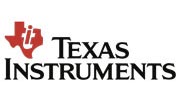Filter interviews by
Texas Instruments Interview Questions, Process, and Tips
Texas Instruments Interview Experiences
120 interviews found
I applied via Campus Placement
Interview Questionnaire
10 Questions
- Q1. Explain Fourier Series based on your understanding
- Ans.
Fourier series is a mathematical representation of a periodic function as a sum of sine and cosine functions.
Fourier series is used to analyze and synthesize periodic signals.
It decomposes a periodic function into a sum of sine and cosine functions with different frequencies and amplitudes.
The Fourier coefficients represent the amplitude and phase of each frequency component.
The Fourier series can be used to approximat...
- Q2. If two sine waves of different frequency are added will resultant wave be periodic. If so what is period
- Ans.
Yes, the resultant wave will be periodic with a period equal to the least common multiple of the two frequencies.
The period of the resultant wave is determined by the least common multiple of the two frequencies.
If the frequencies are incommensurable, the resultant wave will not be periodic.
If the frequencies are harmonically related, the resultant wave will have a period equal to the fundamental period of the lower fr...
- Q3. What does odd and even harmonics of fourier series signify
- Ans.
Odd harmonics represent asymmetry in a signal while even harmonics represent symmetry.
Odd harmonics are multiples of the fundamental frequency and have a phase shift of 90 degrees.
Even harmonics are also multiples of the fundamental frequency but have a phase shift of 0 degrees.
Odd harmonics represent the asymmetry in a signal, while even harmonics represent the symmetry.
For example, a square wave has odd harmonics onl...
- Q4. Explain aliasing, nyquist sampling theorem
- Ans.
Aliasing occurs when a signal is sampled at a rate lower than the Nyquist rate, resulting in distorted or incorrect signal representation.
Nyquist sampling theorem states that a signal must be sampled at a rate at least twice its highest frequency component to avoid aliasing.
Aliasing can be avoided by using a low-pass filter to remove high-frequency components before sampling.
Examples of aliasing include the wagon-wheel...
- Q5. If a sine wave is sampled at 1.5 times its original frequency, can the original wave be retained? (Ans: Yes)
- Ans.
Sampling a sine wave at 1.5 times its original frequency retains the original wave.
The original wave can be reconstructed using interpolation techniques.
The Nyquist-Shannon sampling theorem states that a signal can be perfectly reconstructed if it is sampled at twice its highest frequency component.
Sampling at 1.5 times the original frequency satisfies the Nyquist-Shannon sampling theorem.
This technique is used in digi
- Q6. What was the learning outcome from your leadership experience?
- Ans.
I learned the importance of communication, delegation, and trust in effective leadership.
Effective communication is key to ensuring everyone is on the same page
Delegating tasks allows for better time management and skill utilization
Trust in team members fosters a positive work environment and encourages growth
Leading by example sets the tone for the team's work ethic
Being open to feedback and constructive criticism hel
- Q7. What was the learning outcome from your (particular) project ?
- Ans.
The project helped us understand the effectiveness of deep learning models in speech recognition.
Explored various deep learning models for speech recognition
Evaluated the performance of each model using metrics like accuracy and F1 score
Identified the best performing model and its optimal hyperparameters
Learned about the importance of data preprocessing and augmentation
Gained insights into the challenges and limitation
- Q8. Are you into electrical related companies or companies which offer leadership profile?
- Ans.
I am more interested in electrical related companies.
I have a background in electrical engineering.
I enjoy working with technology and innovation.
I am interested in companies that are pushing the boundaries of what is possible.
Examples of companies I am interested in include Tesla, SpaceX, and Intel.
- Q9. One word in which your friends would describe you?
- Ans.
Reliable
Always there for my friends
Consistent in my actions and words
Trustworthy and dependable
- Q10. Anything you would like to ask me?
Interview Preparation Tips
Experience: The test for Analog and digital was conducted online and Signal processing was offline. Analog tested basic LCR circuits , bode plots and analysis of poles and zeroes. Questions on transistors were also asked. 10/20 would be a good score , give that there is a negative mark of 0.5 for every incorrect answer.
Digital was same format as Analog. It tested knowledge on gates, flip flops and Digital circuits using transistors. The exam was quite challenging.
Signal processing mainly tested DSP (Quiz type questions ) . Quite a lot of questions were based on frequency modulation. A sound knowledge of basics should ensure good marks in test. Marking Scheme +1 for correct and -0.25 for incorrect answer. 20 questions, 90 minutes.
A half an hour aptitude based test which was quite simple.
Tips: Ensure sound knowledge on fundamentals of LCR circuits, bode plots, Op-Amps, pole zero analysis and digital circuits. If possible learn basics on biasing of MOSFETs. For signal processing, revision of course work should be sufficient and lay emphasis on basics of frequency and phase modulation.
Duration: 240 minutes
Total Questions: 80
Round: Technical Interview
Experience: Around 10 to 20 people were selected for technical interview.I was shortlisted for Signal Processing and the questions were quite simple than expected. I was asked to explain concept of Fourier series and based on that questions were asked. In the end I was also tested on DTFT basics and nyquist sampling theorem. It went on for half an hour and ended with a puzzle. No questions on resume was asked.
Tips: Be very confident on the basics. Only your basic understanding will be tested. Also during interview make sure you ask enough questions if you don't understand. The interviewer will guide you properly. Remember your approach and understanding of basics concepts will be mainly tested, not formula or answer to the problem.
Round: HR Interview
Experience: Around 4 were shortlisted for HR interview. Selection was based on Technical round performance and Resume. I am not sure if technical exam marks were considered for shortlisting.
Questions were asked about my projects and leadership experience. They asked me if I was into core or leadership profile and that if I applied for ITC , P&G etc ( My answer was NO ). My interest in Electrical Engineering should have a positive opinion about me.I had many good projects in my resume. So I was asked about learning outcome of the important project which I worked on and I was able to answer very well. My personality was also tested which I answered quite satisfactorily.
The round ended after I asked the HR about description of kind of projects an intern will be working on and some questions about profile.In general they didn't consider CGPA as a huge factor for hiring interns.
Tips: Honestly answer the questions faced and whenever you get chance demonstrate your interest in working for a core company. Get your resume reviewed by seniors and highlight appropriate Projects, PORs , skills and coursework.Make sure you are prepared to answer questions based on your projects, PORs and about yourself.
General Tips: In general an interest in core profile and the subject would help in cracking Texas Instruments. Focus on the basics for technical test and interview and highlight appropriate point in your resume. Good luck.
Skill Tips: In general an interest in core profile and the subject would help in cracking Texas Instruments. Focus on the basics for technical test and interview and highlight appropriate point in your resume. Good luck.
Skills: Leadership Skills, Knowledge Of Projects Undertaken, Digital Signal Processing - DSP, Analog Electronics
Duration: 2
College Name: IIT Madras
Motivation: I was interested in working for real time electrical Engineering problems based on my experience with previous projects. So naturally Texas Instruments was one of the best choice for me.
Funny Moments: Q: How would your friends describe you?
Ans: philosophical . Happy. :-p
Top Texas Instruments Signal Processing Interview Questions and Answers
Signal Processing Interview Questions asked at other Companies
I applied via Campus Placement and was interviewed in Aug 2024. There were 2 interview rounds.
60 mins test which comprises of 2 sections, Technical and aptitude. Both sections have a time limit of 30 mins. The technical questions were easy to medium and i could finish it in time but i needed more time for finishing the aptitude, a total 40 questions.
(5 Questions)
- Q1. Tell me about yourself
- Ans.
I am a recent graduate with a degree in Computer Science and a passion for coding and problem-solving.
Recent graduate with a degree in Computer Science
Passionate about coding and problem-solving
Experience with programming languages like Java, Python, and C++
Completed internships at tech companies such as Google and Microsoft
- Q2. Find the voltage through the resistor
- Ans.
To find the voltage through a resistor, use Ohm's Law: V = I * R
Use Ohm's Law: V = I * R, where V is the voltage, I is the current flowing through the resistor, and R is the resistance of the resistor
If the current flowing through the resistor is 2A and the resistance is 5 ohms, the voltage would be V = 2 * 5 = 10V
Make sure to use the correct units for current (Amps) and resistance (Ohms) to get the voltage in Volts
- Q3. The interviewer just kept on adding an extra resistor in parallel and in series to the resistor and asked me to find the voltage
- Q4. He then asked a question on transient analysis ie 2 capacitors connected in series with a switch which closes at t>0 with the voltage across the 2 capacitors being 3 v and asked to find the total voltge
- Q5. Explain the working of a capacitor and resistor and relation between resistance and length , area
- Ans.
Capacitors store electrical energy while resistors limit the flow of current. Resistance is directly proportional to length and inversely proportional to area.
Capacitors store electrical energy by creating an electric field between two conductive plates separated by an insulating material
Resistors limit the flow of current in a circuit by dissipating energy in the form of heat
The resistance of a resistor is directly pr...
Interview Preparation Tips
- AEC
- Network analysis
- Control System
Intern Interview Questions asked at other Companies
I applied via Campus Placement and was interviewed in Sep 2024. There were 2 interview rounds.
Basic aptitude and mcqs on analog and digital electronics
(6 Questions)
- Q1. Introduce yourself ( 2 minutes)
- Ans.
I am a dedicated Analog Layout Engineer with a strong background in designing and implementing analog circuits.
I have a Bachelor's degree in Electrical Engineering from XYZ University.
I have 5 years of experience working in the semiconductor industry, specifically focusing on analog layout design.
I am proficient in using CAD tools such as Cadence Virtuoso for layout design.
I have a strong understanding of analog circui...
- Q2. Why are semiconductors used in electronics?
- Ans.
Semiconductors are used in electronics because of their ability to conduct electricity under certain conditions, making them essential for creating electronic devices.
Semiconductors can be used to control the flow of electricity, allowing for the creation of transistors, diodes, and integrated circuits.
They have properties that fall between conductors and insulators, making them versatile for various electronic applica...
- Q3. What is a diode and how does it work?
- Ans.
A diode is a semiconductor device that allows current to flow in one direction only.
A diode has two terminals - an anode and a cathode.
It works by allowing current to flow from the anode to the cathode when a forward voltage is applied.
When a reverse voltage is applied, the diode blocks the current flow.
Diodes are commonly used in rectifiers, voltage regulators, and signal demodulation.
Examples of diodes include silico...
- Q4. Biasing of a diode and it's voltage and current characteristics.
- Ans.
Biasing of a diode refers to applying a DC voltage across the diode to control its voltage and current characteristics.
Biasing a diode involves applying a DC voltage across it in order to control its operation.
Forward biasing occurs when the positive terminal of the voltage source is connected to the anode of the diode.
Reverse biasing occurs when the negative terminal of the voltage source is connected to the anode of ...
- Q5. Fabrication process of a mosfet
- Ans.
The fabrication process of a MOSFET involves creating the various layers and structures that make up the transistor.
Start with a silicon wafer as the base material
Create the gate oxide layer on top of the wafer
Deposit polysilicon to form the gate electrode
Implant dopants to create the source and drain regions
Add metal layers for interconnects
Perform various lithography and etching steps to define the transistor's featu
- Q6. Working and different regions of operations of the mosfet.
- Ans.
MOSFET operates in different regions: cutoff, triode, saturation. Each region has specific characteristics.
Cutoff region: MOSFET is off, no current flows
Triode region: MOSFET acts as a resistor, linear relationship between Vgs and Id
Saturation region: MOSFET acts as a current source, Vds is small and Id is relatively constant
Interview Preparation Tips
Top Texas Instruments Analog Layout Engineer Interview Questions and Answers
Analog Layout Engineer Interview Questions asked at other Companies
I applied via Campus Placement and was interviewed in Aug 2024. There were 2 interview rounds.
Basic verbal, aptitude questions, Calculate resistance value, multiplexer.
(5 Questions)
- Q1. Resistor ideal short concepts, give 2-5 circuits and ask the difference between those ideal short, nodal analysis
- Q2. Capacitor, capacitance 12th formula, graph, charging discharging, directly or inversly proportional to area, distance between plates.
- Q3. Diode, P-N junction formation, graph, role of threshold, formula.
- Q4. Active region of Transistors, characteristics, graph, Cmos circuit basic concepts on inverter
- Q5. Based on your Project and HR questions
Interview Preparation Tips
Study 12th/PU semiconductor, Capacitor, Resistor parts, Explain Project properly, Communicate and give relavent answer or say I'm not sure right now... Be confident, All the Best!!..
Texas Instruments interview questions for popular designations
I applied via Campus Placement and was interviewed in Aug 2024. There were 4 interview rounds.
(1 Question)
- Q1. 1st test we have 65 questions focusing on only Opamps
(3 Questions)
- Q1. We have mixed questions 40 in this test
- Q2. 20 from technical
- Q3. 20 from aptitude
(1 Question)
- Q1. Asked few questions on network theory based circuits
(2 Questions)
- Q1. About the college experience
- Q2. About family and basic HR questions
Analog Layout Design Engineer Interview Questions asked at other Companies
Get interview-ready with Top Texas Instruments Interview Questions
I applied via Campus Placement and was interviewed in Jul 2024. There were 2 interview rounds.
Mostly questions are on number system,probabilty and PC and from verbal reasoning
(5 Questions)
- Q1. Design 3 input xor gate using 2:1 muxes
- Ans.
Use 2:1 muxes to create a 3 input XOR gate.
Connect two of the inputs to the select lines of the muxes.
Connect the third input to the data input of one of the muxes.
Connect the outputs of the two muxes to the inputs of a third mux to get the XOR output.
- Q2. Frequency divider circuits
- Q3. Differnce between blocking and non blocking assignmenst
- Ans.
Blocking assignments wait for the assigned value to be calculated before moving on, while non-blocking assignments allow for concurrent execution.
Blocking assignments use '=' operator and execute sequentially
Non-blocking assignments use '<=' operator and allow for concurrent execution
Blocking assignments can cause race conditions if not used carefully
Non-blocking assignments are commonly used in Verilog for modeling ha
- Q4. 3 input xnor gate truth table
- Ans.
A 3-input XNOR gate truth table shows the output based on the inputs being equal or not.
XNOR gate output is 1 when all inputs are equal, and 0 when inputs are not equal
The truth table for a 3-input XNOR gate will have 8 rows (2^3) to cover all input combinations
Example: Input A=0, B=1, C=0 will result in output 0
- Q5. Difference between 8051 and arm microprocessor
- Ans.
8051 is an 8-bit microcontroller while ARM is a 32-bit microprocessor with higher performance and more advanced features.
8051 is an 8-bit microcontroller, while ARM is a 32-bit microprocessor.
ARM processors generally have higher performance and more advanced features compared to 8051.
ARM processors are commonly used in mobile devices, embedded systems, and IoT applications, while 8051 is more commonly used in simple em...
Skills evaluated in this interview
Top Texas Instruments Digital Engineer Interview Questions and Answers
Digital Engineer Interview Questions asked at other Companies
Basic questions in electroics, digital and analog
(2 Questions)
- Q1. Basic to tough questions on opamp
- Q2. Basic to tough RC circuit questions
Intern Interview Questions asked at other Companies
(5 Questions)
- Q1. Full form of PN Junction DIode.
- Ans.
PN Junction Diode stands for Positive-Negative Junction Diode.
PN Junction Diode is a semiconductor device formed by joining a P-type semiconductor with an N-type semiconductor.
It allows current to flow in one direction only, from the P-type region to the N-type region.
Commonly used in rectifiers, voltage regulators, and signal demodulation.
Example: 1N4148 is a popular PN Junction Diode.
- Q2. Full form of DV
- Ans.
DV stands for Digital Video.
DV is a format used for recording and playing back digital video.
It is commonly used in camcorders and digital cameras.
DV files have a .dv file extension.
DV video has a resolution of 720x480 pixels for standard definition or 720x576 pixels for PAL systems.
- Q3. What is tdl in memory testing
- Ans.
TDL stands for Test Data Load in memory testing, used to load test data into memory for testing purposes.
TDL is a process in memory testing where test data is loaded into memory to simulate real-world usage scenarios.
It helps in identifying memory leaks, performance issues, and other memory-related problems.
Examples of TDL tools include MemTest86, RAMMon, and MemTest.
- Q4. What is diffrence between xor and elastic codec
- Ans.
XOR is a logical operation that outputs true only when inputs differ, while elastic codec is a compression algorithm used in video streaming.
XOR is a logical operation that outputs true only when inputs differ
Elastic codec is a compression algorithm used in video streaming
XOR is commonly used in cryptography for encryption purposes
Elastic codec helps in reducing the size of video files for efficient streaming
- Q5. Select following with least elastic coeeficiant
Skills evaluated in this interview
Dft Intern Interview Questions asked at other Companies
Easy if you managae time well otherwise time will be not sufficient
(2 Questions)
- Q1. Introduction about myself
- Q2. Technical questions on basics
Top Texas Instruments Analog Design Engineer Interview Questions and Answers
Analog Design Engineer Interview Questions asked at other Companies
I applied via Campus Placement and was interviewed in Aug 2024. There were 2 interview rounds.
Its basically a test comprising 32 mcq
12- logical reasoning
20- core C,DBMS, OS , Computer Networks
2 coding Questions
(2 Questions)
- Q1. He just Gave me to design a React Page and removed all the starting code and gave me blank folder and asked to code all by myself
- Q2. He asked me SQL queries which was quite tough as its of nested queries
Software Developer Interview Questions asked at other Companies
In the OA there were 200 MCQ questions
(2 Questions)
- Q1. Communication System based
- Q2. How to understand the customer requirements (Sales related)
Top trending discussions






Texas Instruments Interview FAQs
Some of the top questions asked at the Texas Instruments interview -
The duration of Texas Instruments interview process can vary, but typically it takes about less than 2 weeks to complete.
Recently Viewed
Tell us how to improve this page.
Texas Instruments Interviews By Designations
- Texas Instruments Analog Design Engineer Interview Questions
- Texas Instruments Analog Engineer Interview Questions
- Texas Instruments Analog Layout Engineer Interview Questions
- Texas Instruments Digital Design Engineer Interview Questions
- Texas Instruments Intern Interview Questions
- Texas Instruments Design Engineer Interview Questions
- Texas Instruments Embedded Software Engineer Interview Questions
- Texas Instruments Digital Engineer Interview Questions
- Show more
Interview Questions for Popular Designations
- Analog Design Engineer Interview Questions
- Digital Design Engineer Interview Questions
- Analog Engineer Interview Questions
- Analog Layout Engineer Interview Questions
- Intern Interview Questions
- Design Engineer Interview Questions
- Embedded Software Engineer Interview Questions
- Software Engineer Interview Questions
- Show more
Texas Instruments Interview Process
based on 66 interviews
Interview experience
Interview Questions from Similar Companies
Fast track your campus placements
Texas Instruments Reviews and Ratings
based on 182 reviews
Rating in categories
|
Analog Design Engineer
152
salaries
| ₹0 L/yr - ₹0 L/yr |
|
Software Engineer
72
salaries
| ₹0 L/yr - ₹0 L/yr |
|
Design Engineer
52
salaries
| ₹0 L/yr - ₹0 L/yr |
|
Digital Design Engineer
51
salaries
| ₹0 L/yr - ₹0 L/yr |
|
Application Developer
39
salaries
| ₹0 L/yr - ₹0 L/yr |

Analog Devices
NXP Semiconductors

Microchip Technology

STMicroelectronics
- Home >
- Interviews >
- Texas Instruments Interview Questions



















